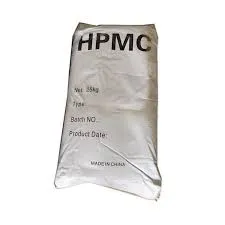
Дек . 03, 2024 15:50 Back to list
hydroxyethylcellulose based
Hydroxyethyl Cellulose-Based Products Versatility and Applications
Hydroxyethyl cellulose (HEC) is a non-ionic, water-soluble polymer derived from cellulose, a natural polymer found in plant cell walls. Its unique properties make it a crucial ingredient in various industries, ranging from pharmaceuticals to cosmetics and construction. This article explores the significance of HEC-based products, highlighting their versatility and applications.
One of the most prominent attributes of hydroxyethyl cellulose is its thickening and gelling capabilities. This makes HEC an essential component in formulations requiring controlled viscosity and stability. In the pharmaceutical industry, HEC is commonly used as an excipient in drug formulations. It enhances the solubility of poorly soluble drugs, facilitating controlled release and improving bioavailability. Its ability to form gels also plays a significant role in creating hydrogels for drug delivery systems, which provide sustained release of therapeutic agents.
Hydroxyethyl Cellulose-Based Products Versatility and Applications
Another essential application of hydroxyethyl cellulose is in the construction industry. HEC is used as a water retention agent in cement-based materials, such as mortars and plasters. The ability of HEC to retain water significantly improves the workability and adhesion of these materials, ensuring better performance during application. Moreover, it helps in controlling the drying time of cement mixtures, which is crucial for achieving optimal strength and durability.
hydroxyethylcellulose based

In the food industry, hydroxyethyl cellulose serves as a thickening agent and stabilizer, providing desirable textures in sauces, dressings, and dairy products. Its ability to suspend particles and improve mouthfeel makes it a valuable ingredient in many food formulations. Importantly, HEC is considered safe for consumption and adheres to food regulations, further enhancing its appeal in the culinary world.
HEC’s eco-friendly nature also deserves mention. Since it is derived from cellulose, a renewable resource, it aligns well with the growing trend towards sustainable and green products. The biodegradability of HEC adds to its environmental credentials, making it a suitable choice for eco-conscious consumers and manufacturers alike.
Furthermore, ongoing research into the properties and applications of hydroxyethyl cellulose continues to open new avenues for its use across diverse industries. Innovations in formulation technologies are likely to enhance the performance and efficacy of HEC-based products, ensuring they meet the evolving demands of various markets.
In conclusion, hydroxyethyl cellulose-based products offer remarkable versatility and find application in numerous fields, including pharmaceuticals, cosmetics, construction, and food. Its unique properties, such as thickening, gelling, and film-forming capabilities, make it an invaluable ingredient for formulators seeking to innovate and improve product performance. With its eco-friendly credentials and safety profile, the future of HEC in various industries appears promising, paving the way for exciting developments and applications. As industries continue to embrace sustainable solutions, hydroxyethyl cellulose will undoubtedly play a significant role in meeting these goals.
-
Versatile Hpmc Uses in Different Industries
NewsJun.19,2025
-
Redispersible Powder's Role in Enhancing Durability of Construction Products
NewsJun.19,2025
-
Hydroxyethyl Cellulose Applications Driving Green Industrial Processes
NewsJun.19,2025
-
Exploring Different Redispersible Polymer Powder
NewsJun.19,2025
-
Choosing the Right Mortar Bonding Agent
NewsJun.19,2025
-
Applications and Significance of China Hpmc in Modern Industries
NewsJun.19,2025







